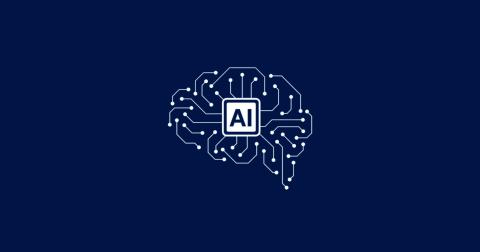Writing about AI can feel overwhelming because the field changes so quickly and there’s so much information out there. Even so, I think it’s important to talk about how AI’s growth affects us—not just as technologists, but as people making choices about these tools. I want to share my approach and practical ideas to help others learn how to use AI in their work and daily lives.
In using AI regularly as a software consultant, I find its most significant impact lies in shifting my role—as a writer, researcher, and developer—from performing tasks to making thoughtful decisions about which tasks to delegate to AI and which require personal expertise. Here are my thoughts, broken down by area.
Research
This is the easiest area to talk about. We’ve always used the latest research tools, and chatting with an AI model is just another step. Still, there are new things to keep in mind. AI will confidently give you answers, but I think of it like a well-informed friend who reads a lot from a limited set of sources. They might have strong opinions based on what they think are facts, but you shouldn’t just take their word for it without checking further. AI is similar, except its sources cover most of the internet.
AI chatbots are great for quickly outlining new projects and breaking down big topics into useful ideas. I use my own judgment and don’t depend on these tools for final answers or finished work. It’s important to keep questioning and comparing what AI suggests, instead of just accepting everything it says.

Software Development
This section isn’t meant to be a comprehensive take on AI coding assistance. Rather, I want to capture a few important elements that guide how we discern and implement AI when writing code at Rapid Development Group.
AI coding tools can boost productivity and help us do more within a set budget. Using new technology, whether it’s AI or something else, is key to delivering the best value to clients. How we use AI is always changing and requires continuous evaluation.
Documentation, automated tests, boilerplate code, and code reviews are low-hanging fruit for AI assistance, and the applicable areas will continue to expand. Using agents during coding and planning tasks is a fantastic way to keep our minds open to solving a difficult problem in the best possible way.
AI coding agents have reached a level of maturity that enables them to help developers discover the best solutions in less time than ever before. They offer new perspectives and possibilities that can be game-changing for productivity and problem- solving.
However, these benefits come with an important caveat: experience is essential. If a developer doesn’t fully understand the implications of accepting a suggested solution, things could end badly. Technology moves at breakneck speed, and it’s neither practical nor possible for a developer to keep up with every latest advancement or framework capability. It’s also not practical to constantly research new ways of doing something they already know how to do.
Ultimately, the developer is responsible for discerning which AI-driven suggestions will truly contribute to the maintainability, stability, and cost-effectiveness of the software deliverable. Experience—both in coding and in maximizing client value—is irreplaceable when making these decisions.
Writing
This is the one I’m least sure about. Tools like Grammarly have been a big win for quickly improving writing and improving sentence structure. But it’s also the one I’m the most fearful of. I personally don’t want my writing skills to atrophy, and consider it a skill that will remain extremely valuable for teamwork and collaboration. It also has the highest risk of changing your 'personal voice' (though your 'voice' is trainable). I’m often blown away by how nice the suggestions from AI sound, but I find myself reverting any accepted revision made to a large body of text because it doesn’t sound like me. ’ Authenticity is extremely important to me, as is forming personal relationships, and my impostor syndrome doesn’t need any more fuel.
Tools like Grammarly have excelled at ‘coaching’ my writing. Proofreading, offering suggestions, or even prompts to keep working on it have helped me write things I’m confident in. But the feedback writing tools have NOT made long-form, creative
writing a quicker activity.
Where I have found a lot of efficiency is in short emails that require some formality, particularly in summarizing and creating technical documentation, where ‘personal voice’ is less relevant.
The question I ask myself is, am I disseminating information in as concise and efficient a way as possible, or am I building a relationship where my ‘brand’ is part of the value?
Here are some examples:
- Git commits, technical updates, and documentation: Big win, and big time savings.
- Email and chat dialog: helpful sometimes, but it doesn’t save much time.
- Long-form creative writing: beyond spellcheck and grammar, the suggestions are valued, but do not save time.

Is it making me less intelligent?
For some things, definitely. Every new technology comes with trade-offs. Are your navigation skills as sharp as before GPS apps? Can you still do math in your head or on paper like you could before calculators? Is your memory as strong as it was before the internet? I’m guessing you, like me, accepted these trade-offs for more efficiency and convenience. I also think, like me, this freed up time to solve new problems—even if some were caused by the new tech.
Intelligence will be lost in some areas, but likely gained in others. For example, using AI has strengthened my ability to rapidly synthesize information from diverse sources, a skill that was less necessary before AI applications became prominent in my work.
I like the way Mark Manson posed this question in a recent newsletter: “What thinking do we still need to protect—and what are we better off outsourcing?”
As we navigate the evolving landscape of technology, it becomes crucial to ask ourselves: What unique human skills do we hold on to, and which tasks can be improved effectively with AI? Consider this: What aspect of your decision-making do you safeguard, and where are you willing to entrust AI to enhance your capabilities?
I'm still figuring this out as I go, and so are our clients. If you're considering a web project and want a team that thinks critically about when to use AI — and when not to — drop me a line. We're focused on delivering real value, not just implementing the latest tech for the sake of being new.
Need a fresh perspective on a tough project?
Let’s talk about how RDG can help.
